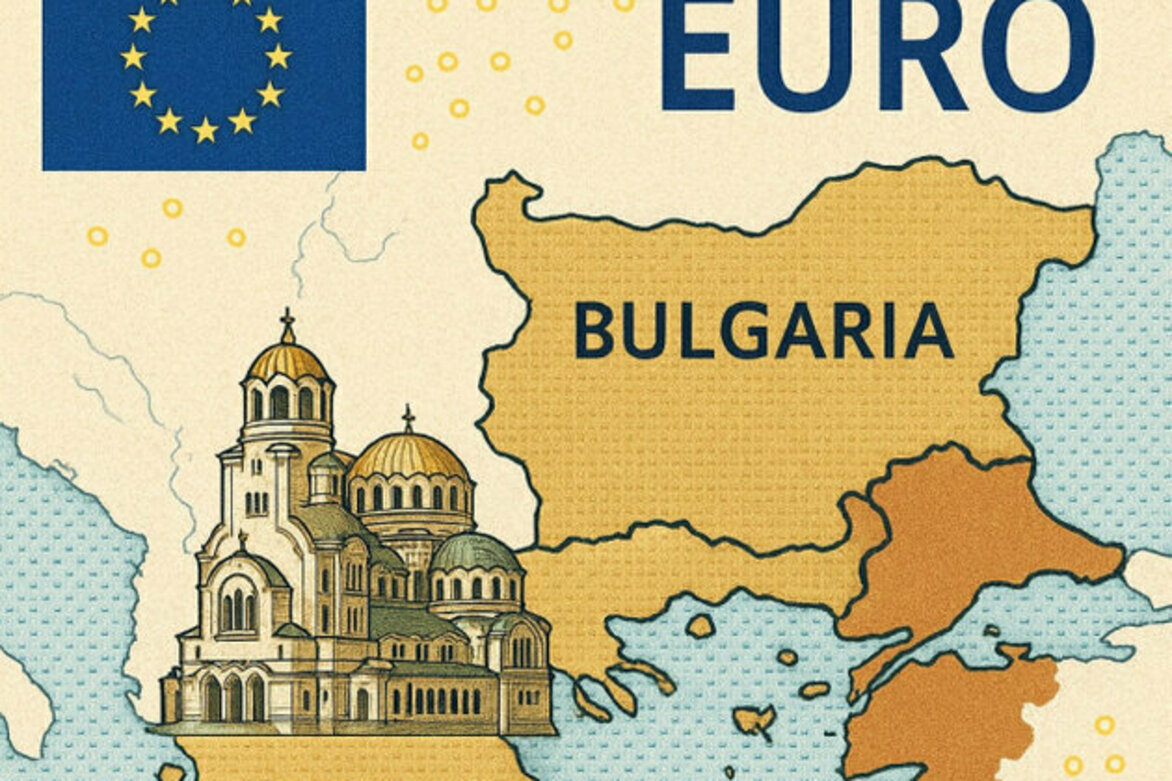Bulgarias Euro Dilemma in the Shadow of Croatia and Greece
Novinite.com
12 Jun 2025

Introduction
Bulgaria's path toward euro adoption has slowed, with2026 now the earliest realistic entry date. Although the country formally enteredERM II in July 2020, itmissed the 2024 targetand failed to meet inflation benchmarks in 2023. While the Bulgarian government remains committed to joining the eurozone,public opposition has surged, and political resistance is growing.
Notably,President Rumen Radev has called for a national referendum, reflecting widespread skepticism. This article analyzes theeconomic pros and cons, using comparative data fromCroatia,Greece, and other countries that transitioned to the euro.
Bulgaria in 2024: Status Update
Despite technical readiness in areas like fiscal balance and exchange rate stability,inflation volatility and public sentimentare the biggest hurdles.
Public Sentiment: Why Many Bulgarians Oppose the Euro
Recent polls showa majority of Bulgarians are against euro adoption:
Gallup International Balkan (2023):58% opposed, 30% in favor
Trend Research (2023):60?65% againstthe euro in most age groups
Main concerns: Inflation, loss of sovereignty, lack of trust in EU institutions
PresidentRumen Radev, reflecting this sentiment, called for areferendumin 2025. Though no referendum has been held, the idea underscores the political friction surrounding the issue.
Case Study 1: Croatia (Joined Eurozone in 2023)
Context:
Peggedkunato the euro since 1994
GDP per capita (PPP): ?27,200
Inflation (2022): 10.7%
Public debt: 70.6% of GDP
What Happened Post-Euro:
Gains:
Lower interest rates
Boost in tourism revenue(+15% in early 2023)
Improved credit ratings
Full access toECB liquidityand financial safety nets
Problems:
Inflation spike: Prices rose 12.7% YoY in early 2023
Dual pricing confusion: Difficult for elderly and rural populations
Retail backlash: Accusations of price manipulation
Public mistrust: Most Croats opposed euro adoption at the time
Lesson for Bulgaria: Transparent communication and strong consumer protections are essential. Croatia showed that even a ?technically smooth? adoption can create public backlash without careful inflation controls.
Case Study 2: Greece (Joined in 2001)
Context at Entry:
GDP growth: 4.5%
Debt: 103% of GDP (understated)
Unemployment: 10?11%
Inflation: ~3.2%
The Crisis Decade:
Failures:
Underreported deficits and debt
Borrowed heavily due to cheap credit
No control over monetary policy when crisis hit
Deep recession, 27% peak unemployment in 2013
Loss of sovereignty under IMF/EU bailouts
Initial Gains:
Interest rate convergence
Short-term FDI boost
EU structural funds inflows
Lesson for Bulgaria:Sound fiscal governance must be preserved. Unlike Greece, Bulgaria maintains low debt and a conservative budget?but slippage could be catastrophic under euro constraints.
Case Study 3: Other Euro Adopters
These countries demonstrate thatsuccessful euro transitions are possible, but only withpublic trust,price controls, andresilient institutions.
Pros of Euro Adoption for Bulgaria
Economic Advantages:
No conversion costsfor business or tourism
Lower transaction riskwith EU trade partners (~56% of exports to eurozone)
Improved investor confidence(especially in banking and real estate)
Access to ECB's liquidity and safety mechanisms
Enhanced financial credibility
Tighter EU integration, opening door to more cohesion funds and strategic influence
Cons and Risks
Economic and Political Risks:
Loss of monetary tools(no devaluation or independent rate setting)
Perceived inflationdue to rounding-up or pricing abuse
Public resistancemay lead to political instability or delayed adoption
Limited ECB fit?monetary policy might not match Bulgaria's economy
Risk to low-income groups?fixed income households could face real losses
Political tension?referendum calls could polarize society
Conclusion: Is Bulgaria Ready?
Technically: Yes?Bulgaria meets most Maastricht criteria, especially fiscal and exchange rate stability.
Politically: Not yet?public trust is lacking, and euro enthusiasm is far from unanimous.
Economically: Conditional?benefits will materialize only with strong regulatory frameworks and inflation controls.
Final Thought
Euro adoption could anchor Bulgaria more firmly in the EU core, buttiming and trust matter just as much as technical readiness. Learning from Croatia's growing pains and Greece's deeper crisis, Bulgaria must approach 2026 not just as a date?but as atarget for readiness, transparency, and public dialogue.
